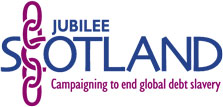Case Study:
Honduras
Honduras Teachers pay the price
for IMF delaying debt relief
In 2000 Honduras qualified for debt relief by the World Bank and
IMF. However one of the conditions attached to this was that the
Honduras government had to restrict its public spending. These
targets set by the IMF were excessivley harmful especially as
Honduras had just come through the horrific damage caused by Hurrican
Mitch in 1998. Honduras fell out of favour with the IMF when they
failed to meet these spending targets and the IMF, World Bank
and other donors subsequently suspended Honduras from completing
the debt relief process. It took four years for Honduras to get
back on track and agree to the spending cuts demanded by the IMF.
Teachers paying the price
The group that is most severely affected by the spending cuts
is public sector employees. Representatives from both the IMF
and the World Bank have repeatedly stated that teachers make an
excessive amount of money. A teacher in primary school in Honduras
makes around US$ 250 per month. 250 dollars is not an excessive
amount of money in Honduras. The price of the basic food basket
is around 200 dollars, which means that a teacher after having
paid for food has 50 dollars left to cover housing, transportation,
healthcare, education etc.
Honduras is part of the
Education for All – Fast Track Initiative. Currently one
third of Honduran children do not complete primary school but
under this initiative the government has committed itself to decreasing
this number to a quarter in 2005 and in 2015 the goal is that
all children will complete primary school.
Donors are providing the cost for the initiative except for the
teachers salaries. This puts pressure on the budget, as the government
will have to employ more teachers to deliver the results promised.
The government has therefore been in a terrible position of having
to reduce the salaries budget for teachers but at the same time
provide schooling for all its children.
 To
read more case studies download the Oxfam report In
the Public Interest
To
read more case studies download the Oxfam report In
the Public Interest

